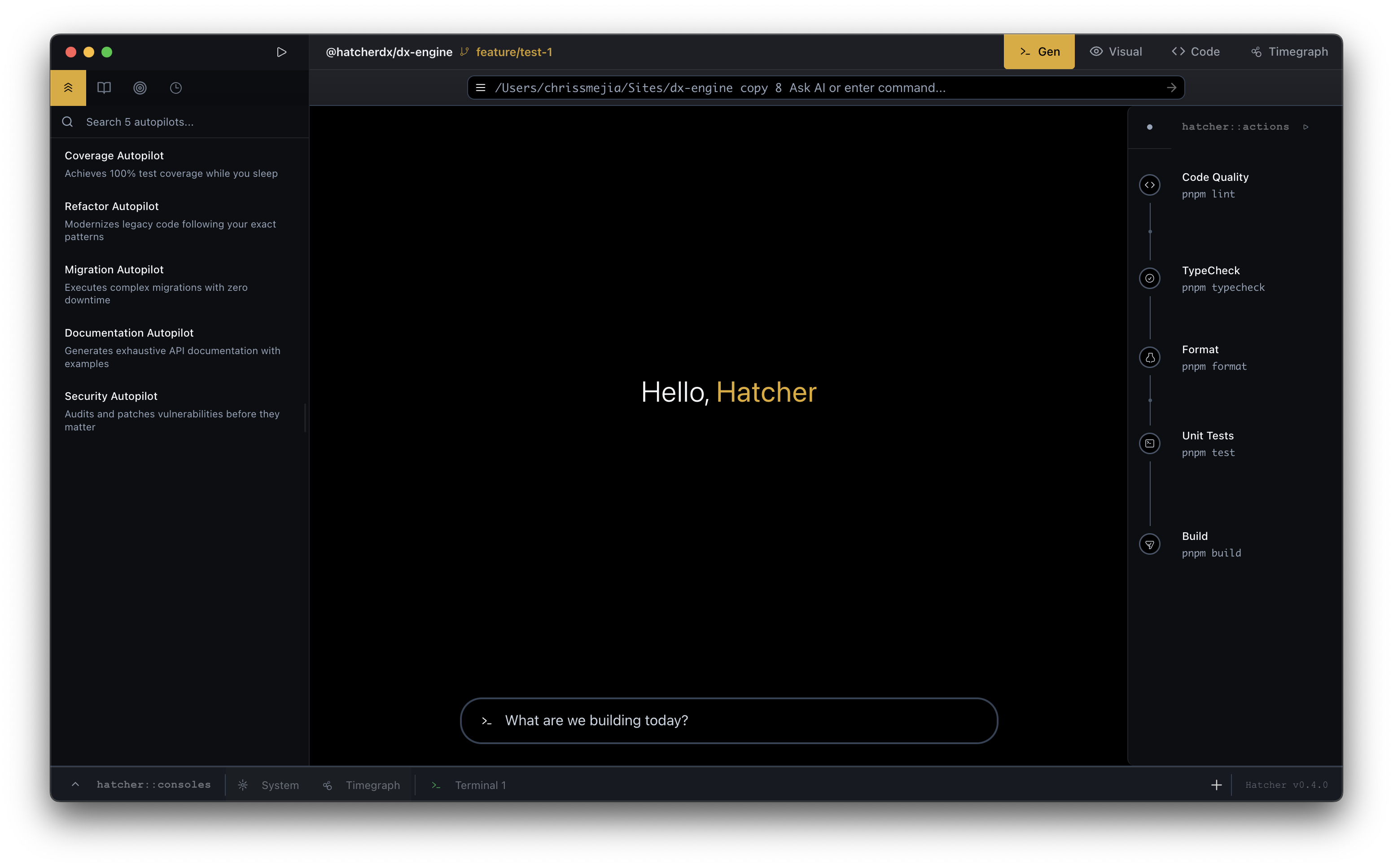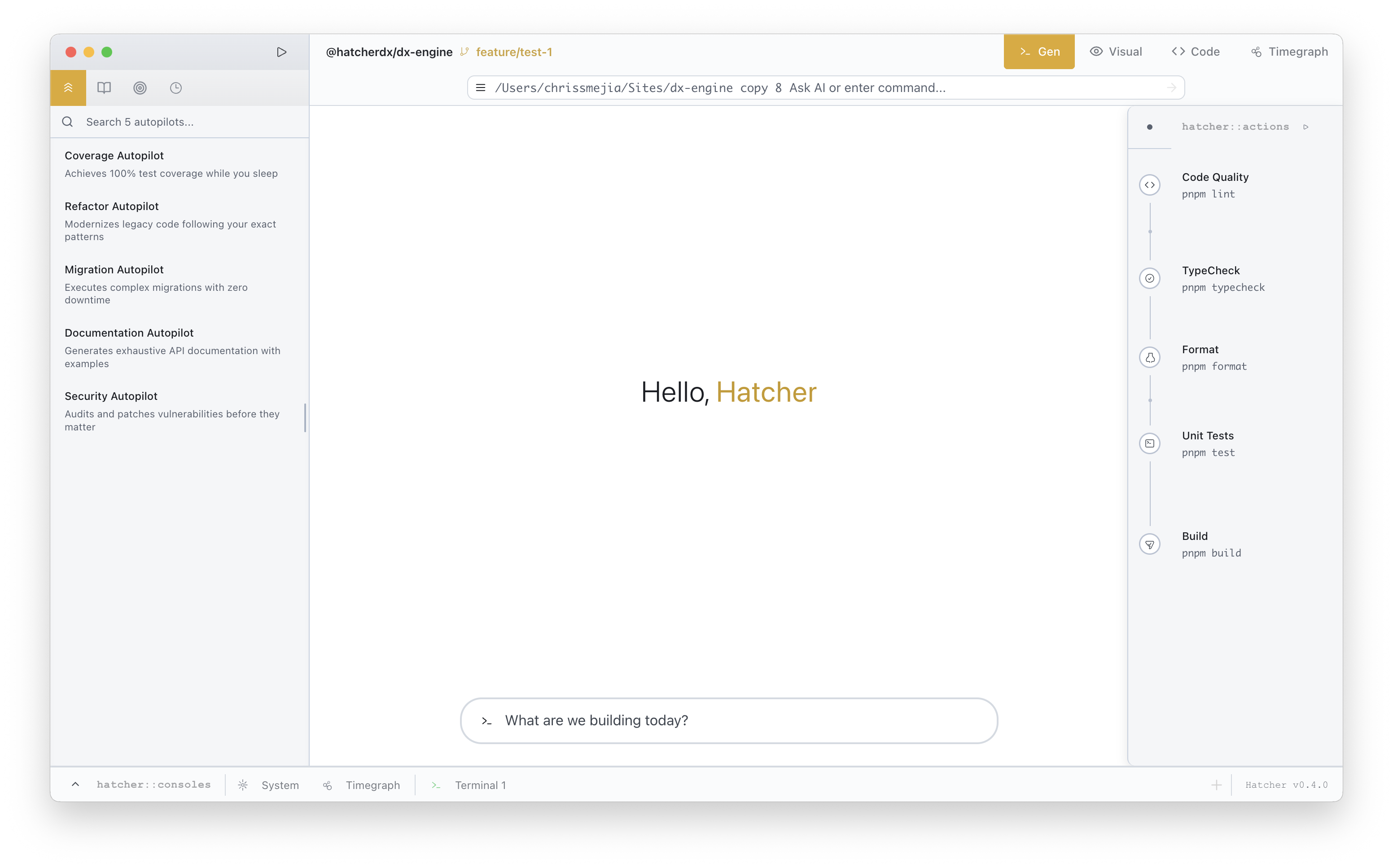Constitutional IDE
Command a fleet of AI drones that code while you sleep. Deploy autopilots that follow your playbooks with military precision. The IDE where you are the Commander, not the debugger.
Deploy Autonomous AI Drones
Launch fleets of AI agents that execute your playbooks. They code, test, and refactor while you sleep. Wake up to completed missions.
Constitutional Command & Control
Your coding standards become unbreakable laws. Every drone follows your constitution with military precision. No rogue AI.
Visual Mission Planning
Point and click to define objectives. The AI fleet understands visual commands, not vague prompts. Zero miscommunication.
Your Fortress, Your Rules
100% local execution. Rust-powered security. Your code never leaves your command center. Total operational sovereignty.
The Command Deck Systems
Four battle-tested systems that turn you from debugger to commander:
Constitutional Playbooks
Write your battle plans once. Your coding standards and architecture patterns become immutable laws that every AI drone must follow. No deviation. No interpretation. Pure execution.
Time Graph Engine
Mission control for every operation. Track every drone's action, rewind failed missions, explore alternate timelines. Your command history preserved forever.
Universal Fabricator
Deploy any weapon from your arsenal. That battle-tested C++ module from 2003? The COBOL logic that runs your empire? All assets ready for deployment via WebAssembly.
Fortress-Grade Security
Your command center is impenetrable. Rust-forged walls. Zero cloud exposure. Every operation local. Your strategies, your code, your sovereignty. No breaches possible.
The Core HATs
A developer "wears different hats" throughout the day. Hatcher gives you a dedicated HAT, or workspace, for every job:
The Code HAT
A world-class code editor, powered by Monaco, for when you are in the flow of pure creation.
The Gen HAT
The prompt engineering interface. Your direct line of communication to the AI fleet.
The Visual HAT
A workspace for designing and interacting with UI components, bridging design and code.
The Time Graph HAT
The ultimate audit tool. A quantum graph of your project's history to visualize every change.
By the Numbers
Ready to Take Command?
About the Admiral

Chriss Mejía
Founder & Principal Systems Architect
My journey in engineering spans over two decades, from serving as VP at a pioneering Silicon Valley AI startup to building the MVP for a YC-backed venture, and leading 300-person enterprise divisions. Now building the tools that will define the next decade of development.
The future of software isn't replacing developers.
It's giving them command.

